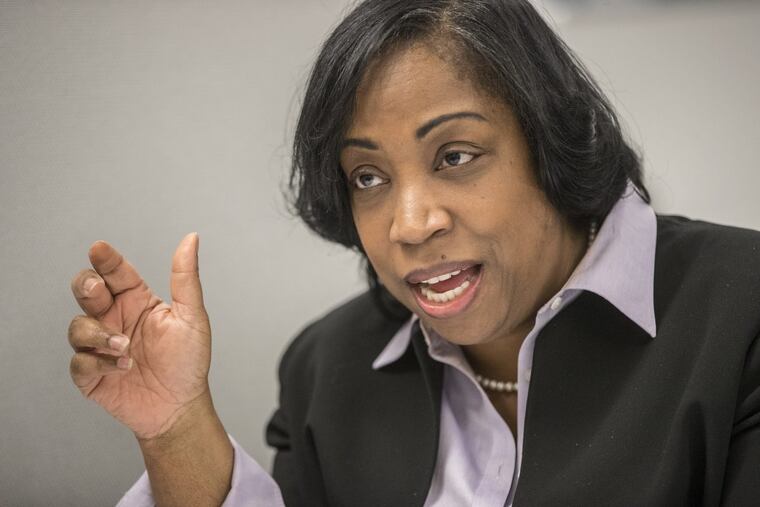Acme owner’s public stock offering falls short; biotech deals multiply; Chase restarts
Despite the slowdown in the national economy, investors are busy setting up deals to squeeze profits from banking to biotech

Thirty million Americans are unemployed, coronavirus cases are climbing, and plywood still covers storefronts in some Philly retail districts. But trillions in U.S. Treasury and Federal Reserve borrowing are pumping up the economy, so investors are buying, selling and even planning new operations. New deals include:
Groceries
Shares of Albertsons Cos. Inc., the chain that owns Malvern-based Acme Markets plus many others — nearly 2,300 U.S. supermarkets in all — will be listed on the New York Stock Exchange Friday after the Idaho-based company’s owners sold 50 million shares late Thursday to Wall Street bankers at $16 each, failing to reach the company’s target of $18 to $20.
Even at the reduced price, the sale enriches a group of Albertsons’ private owners, including Cerebrus Capital Management of New York and Philadelphia-based Lubert-Adler real estate funds. Shares will trade Friday on the New York Stock Exchange using the symbol ACI.
The sellers invested $100 million in Albertsons in 2006 and millions more in 2012 and 2014. A 30 percent jump in spring grocery sales thanks to the coronavirus pandemic has helped the company boost its cash and pay down debt, making it more attractive to investors, at least for now.
The $16 price will delay a hoped-for quick profit by Apollo Global Management, the investment firm whose partners include billionaire Sixers managing partner Joshua Harris. Apollo paid the equivalent of $17.50 a share for a 10 percent stake in Albertsons just last month, betting the stock would soon be worth more.
Both Apollo Global and Lubert-Adler manage money for the Pennsylvania state workers’ and teachers’ pension systems (SERS and PSERS) and would share their Albertsons profits with the pensions, after taking multi-million-dollar fees and a slice of the profits.
Albertsons, whose stores include Jewel groceries in Chicago, Shaw’s in Boston, Vonn’s in California, and Safeways in several states, boosted wages by up to $4 an hour and added 40,000 jobs after the coronavirus shutdowns started in March. But Albertsons ended that temporary hazard pay June 20.
Genes
CSL Behring, the King of Prussia company that sells therapies for immune, brain and breathing conditions, has agreed to pay $450 million for a clinical hemophilia gene therapy program built by Netherlands-based UniQure.
That UniQure program, AMT-061, is designed as a onetime treatment to cure hemophilia, a hereditary blood-clotting condition. The therapy is currently in Phase 3 clinical testing.
It is a rival of the hemophilia gene therapy under development at Philadelphia-based Spark Therapeutics, purchased by Swiss drugmaker Roche last year for $4 billion. CSL Behring, which employs about 1,500 in King of Prussia and 20,000 worldwide, is the largest of several businesses owned by Australia-based CSL Ltd.
Brains
Philadelphia-based Century Therapeutics, which seeks to mass-produce gene therapies as cheaper alternatives to cures pioneered by doctors at the University of Pennsylvania and Children’s Hospital of Philadelphia, has purchased Empirica Therapeutics. The Ontario company, which is developing a gene therapy to fight glioblastoma brain cancers, was bought for an undisclosed sum, Century announced on June 23.
The deal was engineered by Janelle Anderson, Century’s chief strategy officer. Century now employs 80 at its West Philadelphia headquarters and labs in Seattle and Hamilton, Ontario. The company raised $250 million last year from German drugmaker Bayer, Fujifilm Cellular Dynamics Inc., and San Francisco-based Versant Ventures for rapid expansion..
Public
Biotech therapy developer Chondrial Therapeutics Inc. of Bala Cynwyd has combined with Zafgen Inc., Boston, to form publicly traded Larimar Therapeutics Inc., now trading on the Nasdaq Global Market as LRMR.
The Bala Cynwyd-based company has also raised $80 million from investors Cowen Healthcare Investments, Logos Capital, OrbiMed, RA Capital Management and Vivo Capital, in a private placement.
Larimar’s lead product under development, CTI-1601, could be “the first frataxin replacement therapy for patients with Friedreich’s ataxia,” a rare genetic disease, chief executive Carole Ben-Maimon said in a statement.
The company’s lead investor is Deerfield Management, which last winter said it plans a $1.1 billion biotech corporate campus in former GlaxoSmithKline offices near King of Prussia. The new board chairman is Joseph Truitt, former CEO of Achillion Pharmaceuticals Inc.
Satellite
Instead of filling a vacancy at the top of its Philadelphia organization, JPMorgan Chase & Co. has moved the regional Chase banking group under the thumb of its regional boss in faraway Boston.
Roxann Cooke, Chase regional director for New England, adds Chase’s new branches in Pennsylvania, South Jersey and Delaware to her Boston-area responsibilities. In Philly, the regional director job had been briefly held by Michele Lawrence, formerly of Wells Fargo, and once a Democratic hopefully for Congress, when the bank began opening branches here two winters ago. Lawrence now heads “business and community development for market expansion” in the region, said spokeswoman Ashlei Bobo.
Though new branch openings paused in early spring, “Pennsylvania is a fast growing region” and new Chase branches should open this summer in Fishtown, Exton and Cherry HIll, Bobo added.